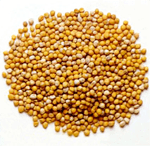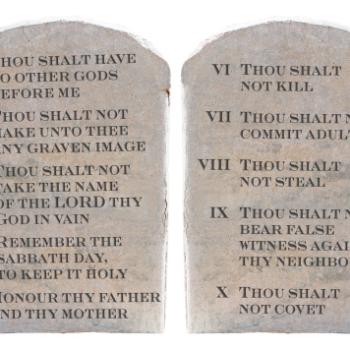By Matthew Potts - June 9, 2009
 June 14 is the second Sunday after Pentecost. You can read the lessons for proper 6 of year B from the lectionary here:
June 14 is the second Sunday after Pentecost. You can read the lessons for proper 6 of year B from the lectionary here:
http://divinity.library.vanderbilt.edu/lectionary/BPentecost/bProper6.htm
First lesson
1 Samuel 15:34 - 16:13
The length of this long season after Pentecost changes from year to year, depending on the date of Easter. As such, sometimes we enter a lectionary cycle midstream, as we do this year. In today's lesson from the Old Testament, we're thrust smack into the middle of an ancient royal soap opera. Samuel, the prophet of Israel and anointer of kings, gets word from God that the current king, Saul, no longer has God's favor. Instead, a son of Jesse in Bethlehem has now been chosen by God. Samuel is frightened of Saul, but proceeds to Bethlehem nonetheless to seek out the new king. Then follows the famous selection - or revelation - of the king, as Samuel looks over each of Jesse's elder sons and tries to find the one God has chosen. Of course, it is the youngest son, David - so insignificant that he remains out at pasture with his sheep - who has found God's favor, and Samuel anoints him on the spot. A few questions for consideration: First, God tells Samuel not to pay attention to appearances when choosing a king, but the author makes a point to mention that David was "ruddy, and had beautiful eyes, and was handsome." Is there some tension here between ignoring appearances and recognizing the handsome regality of David? What makes a person beautiful? Second, this trope of choosing the least clearly resonates throughout the Bible - most significantly for us Christians in Jesus Christ. What do you think it means to be chosen by God? What do you think God has chosen for you, and how do you know?
Second lesson
2 Corinthians 5:6-17
If our Old Testament put us in the middle of a soap opera, Paul's letter to the Corinthians presents the same dramatic sort of intrigue. It's not obvious from this passage, but throughout 2 Corinthians, Paul is basically in an argument with the Christian community of Corinth about the legitimacy of his ministry and the competing claims of other apostles. (Skim through 2 Corinthians in your study - Paul occasionally has some pretty harsh words for his Corinthian friends.)
This particular passage, when taken in the context of Paul's continuing debate, thus gains some interesting nuance. Paul's references to appearing before the judgment seat of Christ, or persuading others, or commending himself to Corinth, or being in his right mind, all reflect an anxiety and even an anger over what has passed between him and his friends at Corinth. Interestingly, though, Paul sets aside his anger and instead calls upon Christ as his advocate. Paul admits that the only measure of ministry is the love of Christ and he leaves this as his final defense to the Corinthians.
What's even more interesting, though, is how the love of Christ becomes not only his defense, but also the opportunity for a restored relationship with Corinth. When Paul says that if anyone is in Christ, she is a new creation, he speaks not just of himself but of the Corinthians, too. Placing Paul's argument here about being God's chosen apostle alongside our text from first 1 Samuel, what more can you say about what it might mean to be chosen by God? How does Paul's defense of his ministry complicate your ideas of being Christ's disciple?
Gospel
Mark 4:26-34
This mustard seed parable occurs in three Gospels, Matthew, Mark, and Luke, and it is of course one of Jesus' most familiar teachings. The Marcan version we read today, however, is somewhat unique for its placement. In Luke, the parable is told just after Jesus heals a crippled woman; in Matthew it accompanies two other parables: the parable of the sower and of the weeds and wheat. In today's reading from Mark, meanwhile, the mustard seed parable follows another parable that sort of combines the images of sowing and reaping that Matthew's has employed.
Mark's sower leaves his seed in the ground and then naps while the seed sprouts and grows, "he does not know how." Then in the next parable, of course, the tiny mustard seed becomes the greatest of all shrubs. Of course, some part of the lesson of these parables must refer to God's tendency to bless the unexpected. That little shepherd out in the field? He will be my king, David. That former persecutor and Pharisee? He will be my apostle, Paul.




